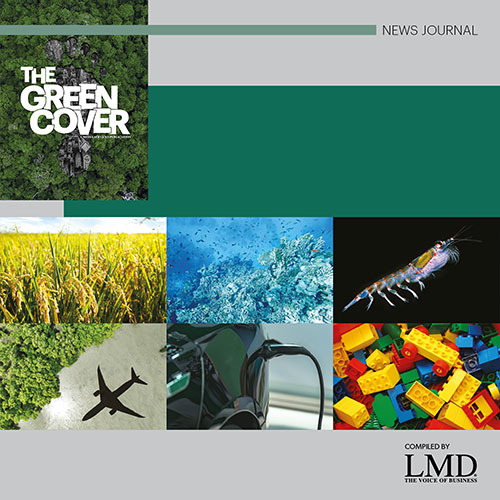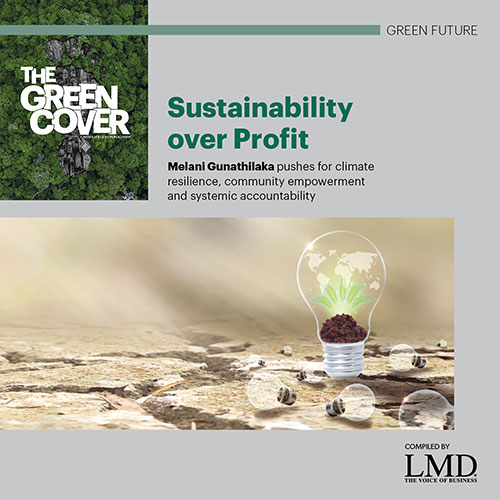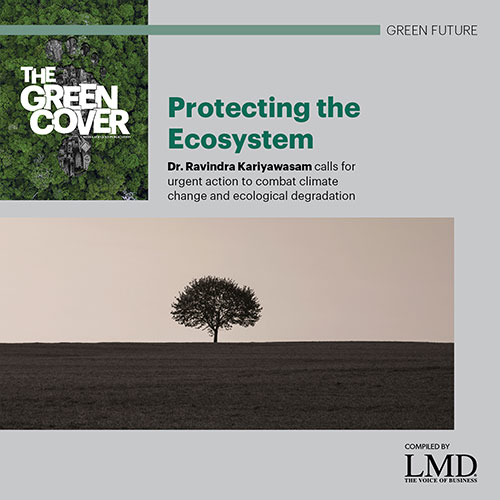CONSERVATION ENDEAVOURS
Raising Wildlife’s Upkeep
Vinod Malwatte highlights the significance of responsibility towards Sri Lanka’s natural world
“By being responsible and eco conscious members of society, we can make a positive contribution towards safeguarding our island’s natural resources” states the Cofounder of The Parrotfish Collective and Executive Director at Lanka Environment Fund Vinod Malwatte.
From his outlook “the adoption of nature based solutions such as establishing blue carbon programmes and payments for ecosystem services will help our rural communities, protect our ecosystems and provide an additional source of income to our government.” Malwatte suggests these progressive programmes could facilitate natural resource conservation alongside responsibly monetising them.
“If nature based tourism is to be promoted by the government, the necessary infrastructure, suitable vocational training programmes and long-term sustainable decision-making that ensure the responsible utilisation of nature need to be adopted,” he asserts.
According to Malwatte, the prevailing economic crisis is the foremost concern of Sri Lanka’s wildlife conservation. He warns that “as the crisis deepens, environmental crimes such as illegal logging for firewood, poaching for meat and encroachment related habitat destruction for agricultural expansion are expected to increase.”
“These will put a significant strain on conserving our island’s wildlife. Additionally, the relevant authorities will struggle to carry out their duties, which may lead to an increase in illegal activities within the protected area network. The longstanding issue of government agencies lacking clarity on each other’s mandates will continue to undermine the future of our wildlife if it remains unsolved,” declares Malwatte.
When it comes to conserving natural habitat, he expresses the need for scientific decision-making over conservation led by anecdotal evidence notably “with field-tested safeguarding interventions available in Sri Lanka being used to solve issues, and centralised decision-making that is steeped in data and science being made the norm.”
Malwatte stresses that “long-term decision-making, which promotes the conservation of our natural resources needs to be adopted, thereby putting a stop to the short-term solutions that place our wildlife populations and ecosystems at risk of overexploitation.”
He believes that safeguarding the nation’s wildlife starts with the people: “We can contribute to its protection through volunteering with conservation groups, utilising our skills to make a difference, voting for candidates that don’t undermine our ecosystems and by donating a small amount of funds to severely underfunded conservation groups.”
“Knowledge is a powerful tool, let’s use our voice to spread awareness about topics we’re passionate about. If we care about Sri Lanka’s environment and wildlife and are proud to call this beautiful biodiversity hotspot home, we need to be acting responsibly to ensure its protection” Malwatte said in closing.
“If we care about Sri Lanka’s environment and wildlife and are proud to call this beautiful biodiversity hotspot home, we need to be acting responsibly








